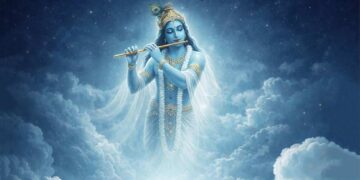
In The Eternal Scale: Ragas Never Die – A Woman’s Impassioned Journey, author Manab Sen orchestrates a poignant, emotionally complex novel that spans continents, generations, and cultures—anchored in the powerful metaphor of music as both memory and healing. More than just a story about Indian classical music, the book is an intergenerational saga of love, abandonment, identity, and the universal human longing to belong.
Where Raga Meets Raw Emotion
Set against the arid backdrop of 1970s Rajasthan, the novel opens with a haunting image—two broken souls, Payal and Ali, finding solace in each other’s company under the moonlit sky of a dried riverbed. Their bond is sealed not by words but by the timeless, spiritual language of Indian ragas. Sen captures the power of music with lyrical grace, making it clear that in this story, music is more than a motif—it is a lifeline that connects the past and the present, mother and child, pain and transcendence.
Two Women, Two Worlds
The narrative seamlessly weaves between the lives of Payal, who becomes Meher-Un-Nissa, and Veronica Greenberg, her biological daughter adopted by a Jewish couple in post-Holocaust America. While Payal’s journey unfolds across the deserts of Rajasthan and the slums of Kolkata, Veronica’s path winds through concert halls and lonely hotel rooms across Europe and America.
Payal’s tragic arc—from a child bride to a woman abandoned by both love and circumstance—climaxes in her transformation into Meher-Un-Nissa, a world-renowned classical vocalist. Her rise from emotional ruin to international acclaim is one of the novel’s most compelling threads, and Sen handles it with poetic delicacy.
Veronica’s narrative, meanwhile, is equally gripping. Raised in a liberal, counterculture household shaped by the traumas of World War II, she is gifted in music but plagued by a sense of incompleteness. As an adult—abandoned in love and raising a daughter on her own—she travels to Kolkata in search of her biological roots. What follows is a suspenseful and heart-wrenching journey with only three days to find the truth, armed with a clue scribbled on a note stuck to her adoption file.
The Scale as Symbol
The title The Eternal Scale is no coincidence. In Indian classical music, a scale (or raga) is a framework of notes that allows infinite expression within a structure. Similarly, Sen’s characters are bound by the constraints of fate, history, and society—but within those bounds, they carve out their own unique melodies. The raga becomes a metaphor for life itself: fluid, improvised, deeply personal.
This theme is explored with great depth as Veronica unknowingly crosses paths with her mother Meher-Un-Nissa in a fleeting concert moment in London. The tragedy of near-recognition, the ache of a connection missed by inches, echoes throughout the book with heartbreaking resonance.
A Tapestry of Social and Political Turmoil
Sen doesn’t shy away from the socio-political undercurrents shaping his characters. The trauma of the Bangladesh genocide, the oppressive realities of child marriage, religious conflict, and judicial injustice all play significant roles in the plot. Yet, these are not presented as mere background—they are integral to the emotional and psychological landscapes of the characters.
The courtroom confession scene, where Payal admits adultery to protect an innocent man while shielding the father of her child, is both shattering and deeply human. Her courage in the face of societal shame forms a stark contrast to the softness of her musical genius, adding richness to her portrayal.
A Tale That Lingers Like a Haunting Melody
One of the most remarkable aspects of The Eternal Scale is its emotional authenticity. Manab Sen resists the temptation to offer neat resolutions. The characters, like real people, carry their scars to the end. Relationships don’t tie up in perfect bows, and not every question is answered—just as in life.
Yet, there is a quiet catharsis. Veronica’s journey to find her origins is not just about locating her biological parents; it is about reconciling the music in her soul with the silence in her past. That her mother’s voice—unrecognized—reaches her through a stage performance rather than a personal reunion is both tragic and transcendent.
Final Verdict
The Eternal Scale is a soulful, genre-defying novel that blends literary fiction, musical philosophy, and cultural history into one harmonious whole. With eloquent prose, rich characters, and a structure as intricate as a raga, Manab Sen has crafted a novel that not only resonates—but reverberates.
It’s a book for lovers of music, seekers of truth, and anyone who believes that somewhere, amid the pain and silence, the heart still remembers its original song.
















